Democratic Republic Of Congo
Despite concerns about violence in the eastern Democratic Republic of Congo (DRC), the UN Security Council is expected to launch on Tuesday an early but gradual withdrawal of peacekeepers from the country from the end of 2023, as requested by Kinshasa.
On the eve of high-risk elections in the country, which coincide with the expiration of the annual mandate of the peacekeeping mission, according to the draft text seen by the;AFP. "the tensions between Rwanda and the DRC" in the east and "concern regarding the escalation of violence" of the United Nations (MONUSCO), the Council should underline its
Despite this situation, the Congolese government has been calling for months for an "accelerated" withdrawal of Blue helmets, from the end of 2023 and not the end of 2024. He considers the UN force ineffective in protecting civilians against armed groups and militias that have been raging for three decades in eastern DRC.
An accusation similar to other African countries, notably Mali which imposed the emergency departure of the UN mission (MINUSMA).
Several members of the Council, notably the United States, have expressed doubts in recent months about the fact that the Congolese forces are ready to replace MONUSCO to ensure the security of the population.
But since UN missions cannot operate without authorization from the host country, the DRC also wants - but less directly than the Malian junta - to force the hand of the Security Council.
If the draft resolution is adopted as planned on Tuesday, the Council will decide "to begin the gradual, responsible and sustainable withdrawal" of the mission, in accordance with a withdrawal plan concluded in November between Kinshasa and MONUSCO.
The first phase plans the complete withdrawal of peacekeepers from the province of South Kivu by the end of April 2024, a withdrawal which will begin "before the end of 2023".
From May 2024, MONUSCO will only be present in North Kivu and Ituri. From July 1, its workforce will be reduced by some 2,350 people (i.e. a maximum authorized strength of around 13,800 military and police officers).
The possible continuation of the withdrawal will have to be determined on the basis of an evaluation report of the first phase, which the Council expects by the end of June 2024.
The UN peacekeeping force (MONUC, then MONUSCO) has been present in the country since 1999. For several years, the Security Council had already begun a cautious disengagement, setting broad parameters for transferring responsibilities from the Blue Helmets to the Congolese forces. With the aim of starting to withdraw by 2024.
In this context, MONUSCO had already focused on the three eastern provinces, North Kivu, South Kivu and Ituri.
Noting further the importance of "coordinating" the various peacekeeping operations in the country, the draft resolution considers the possibility of "operational and logistical" support from MONUSCO to regional forces present in the country.
Kinshasa has decided not to renew the mandate of the East African force deployed in the east, which expired on December 8, and is counting in particular on replacing it with troops from the Southern African Community (SADC).
While the head of MONUSCO Bintou Keita recently expressed concern about an increased risk between the two neighbors. "for calm and dialogue", the draft resolution also calls Rwanda between the DRC and "direct military confrontation"
Without naming anyone, he also condemns "support by any external party" for the armed groups of the M23 ( "March 23 Movement") and the FDLR (Democratic Forces for the Liberation of Rwanda), and calls for "withdrawal" from these external parts of Congolese territory.
In their last report published in June, experts mandated by the Security Council assured that they had "new evidence of direct interventions by the Rwandan defense forces" in the DRC, notably in support of the M23 and the FDLR.



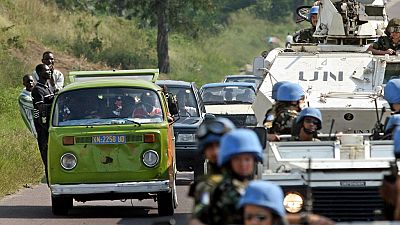

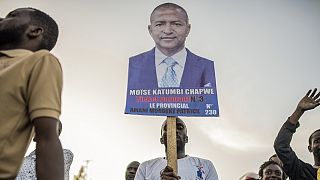
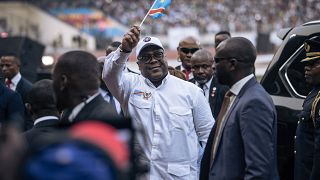
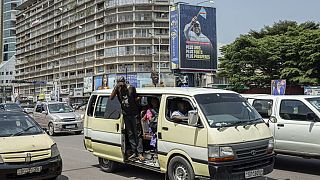

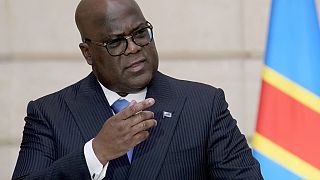
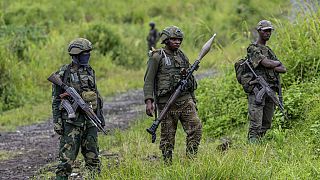



01:30
Gaza war: What's next after new US veto on ceasefire draft resolution?
Go to video
SADC extends mandate of its troops in DRC and Mozambique
Go to video
US vetoes UN resolution demanding a cease-fire in Gaza for 4th time
02:09
Russia vetoes UN resolution calling for immediate cease-fire in Sudan
01:07
Sudan keeps key aid crossing from Chad open to keep humanitarian aid flowing
01:58
Climate adaption: Unfulfilled pledges mean “lost lives and denied development” – UN chief